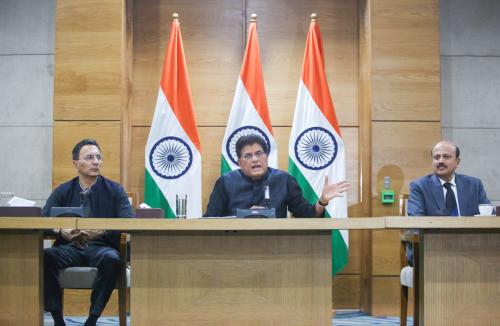Vitamins are powerful metabolic regulators that demand instant cellular response. They are, in essence, concentrated foods. Vitamins and minerals are essential to our good health. They build immunity against colds and flus, protect the heart, keep our bones strong, and prevent neural tube birth defects. A group of vitamins called "antioxidants" may help fight heart disease and cancer, by preventing "bad" cholesterol (LDL) from attaching to and damaging arteries, and by fighting free radicals, which may injure cells and harm the body's natural healing ability.
Do we need vitamins? Or should we consume them naturally? Experts bust the common myths surrounding the hype around the multi-vitamin pills.
Our shelves are flooded with multi-colored pills that promise a daily dosage of Vitamins A to Z. While some swear by their benefits, many others feel they are redundant.
Macrobiotic food consultant Shonaalii Sabherwal and fitness trainer Dilip Heble answer the most common queries surrounding these magic pills.
Don't I get vitamins
through food?
"If you are in optimum health, sleep eight hours a night, don't drink alcohol or smoke, get enough exercise, eat a perfectly balanced whole-food diet every day and live a stress-free life, you probably don't need vitamin supplements," says Sabherwal.
However, since this scenario is far from reality, our reliance on supplements is a necessity. "Until a few years ago, foods were unprocessed and animals were relatively steroid and artificial-hormone free," she adds. Adds fitness trainer Dilip Heble: "For most people, eating five meals a day is not feasible. Also, considering the soil depletion, the vegetables and greens we eat aren't as healthy as they were once."
How much do they help?
Studies have indicated that taking vitamin supplements helps improve overall health and the immune system. For instance, a recent study conducted via a computer simulation model from US showed that adequate Vitamin D levels are best achieved when you rely on supplements.
That's because it helps eliminate the side-effects of UV exposure. And that's just one of the many benefits. "The supplements help iron out deficiencies (if any) and boost health. They are recommended for those, who eat on the run, can't fit three meals into a day," says Sabherwal.
Which form of vitamin is the best?
"If you feel you lead a lifestyle, which requires supplements, a daily multi-vitamin tablet is good enough. A good quality supplement should include Vitamin A, B complex (including B1 to B6, and B12), C, K, D, and E," says Sabherwal. Supplementation also depends on factors such as age, ailments, increased requirements (during pregnancy, menstruation), etc.
Are supplements enough?
Vitamin supplements are ineffective unless accompanied by the right dosage of minerals. For calcium to be absorbed into the body, it needs to have the right level of Vitamin D. So if anemia is your problem, iron supplements by themselves will not be enough. You would also need to have Vitamin C supplements so as to help absorb the iron.
Do children need them too?
"Of course they do," says Heble citing the academic stress and competition that children of all ages are subjected to. "Very often, the cooking methods are to be blamed. They don't help preserve nutrients and an overdose of junk food only makes matters worse.
Apart from supplements, a spoon of flaxseed oil can help get the required dosage of omegas," adds Sabherwal. A lack of vitamins and minerals in the growing years can hamper development and also pose problems in concentration and energy levels. It is recommended that one contact the local general practitioner to ensure the right dosage.
Finally, folic acid is particularly important for women of child-bearing age. Folic acid deficiencies have been linked to the development of neural tube defects in the fetus, which occur during the first few weeks of pregnancy, before the woman is even aware that she is pregnant. Therefore, it is vital that women ensure they get sufficient folic acid, about 400 micrograms (mcg) a day. Folic acid has also been implicated in the prevention of cancer and heart disease in both men and women. Fruits and vegetables, particularly romaine lettuce, spinach, and broccoli are good sources of folic acid.
Are vitamins harmful?
Like everything else, an overdose of vitamins can have serious consequences. "If they are not required by the body, an excess of vitamins can produce more toxicity in the system. Fat soluble Vitamins A and D, Vitamin B6, as well as several minerals can be stored in organs and fatty tissues, and accumulate over time," warns Sabherwal. Water soluble vitamins, on the other hand, if consumed in excess, are excreted from the body via urine. However, extremely high intake of supplements may have minor to adverse effects.












